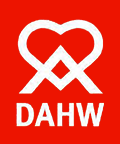Since 1st May 2009 the German Leprosy and Tuberculosis Relief Association (DAHW) has had a new Managing Director: Burkard Kömm, who had been working for many years in several African countries, and who, in his last project, was engaged in developing a health system in Kenya.
Mr. Kömm, what were the reasons behind your decision to work for DAHW?
There were several good reasons to come to DAHW. The association DAHW deals with diseases and people who are normally neglected by relief agencies and projects. That matches my own approach and motivation very closely to try to offer medical assistance to people from marginalised groups in poor countries.
While working in Colombia, Nigeria, Uganda and Kenya I often saw for myself the good quality of DAHW projects. There people suffering from leprosy and tuberculosis found comprehensive and sustainable help from DAHW which enabled them to lead a life in dignity. That impressed me.
Can you tell us already what your upcoming tasks will be and on which subjects you want to focus in future?
All tasks have their own importance. Yet I aim to concentrate first on internal matters, that is structures, processes, systems and methods of communication and, where necessary, to optimise them.
When talking about internal matters I mean, of course, also the programmes and projects in the countries where we are working. Our success - the cure and rehabilitation of the sick – depends on the efficient and high-quality implementation of our projects in the field.
How important is professionalism in the management of a relief association?
Thanks to the press and the internet today we are living in an almost vitreous world – especially us, a relief association, which is financed through donations. This means we have to work transparently and highly professionally.
This holds true notably for a Managing Director. I might have had 12 years good experience in development co-operation, but this is not enough to be able to manage a relief association. Here are counting more the commercial training as well as the training as a male nurse and especially my studies in the planning, managing and financing of health systems in London. Professionalism also means knowing one’s own limits and utilising and accepting advice from internal and external experts wherever necessary.
Can you make a rough assessment of the effects the economic and financial crisis will have on the work of DAHW?
The effects are serious, especially in developing and emerging countries, where markets have collapsed on a massive scale, firms are closing from one day to the next and people are left on the streets, without work and without any social network of benefits, whilst prices for the basic food stuffs are increasing. Whole families are sinking into poverty and thus are falling ill much faster, for example from tuberculosis. So there will be much more work to do for our relief projects than planned originally.
Fortunately we are not feeling the crisis to such a degree in our income from donations. Most of the people have been donating regularly amounts of between 50 and 100 Euros for many years, and this I hope they will continue to do in these times of crisis. One important task will be to explain to people here that their help is needed especially now, because there are no social benefits for the poorest in the slums and in the rural areas of developing countries. But we will also approach institutional funders and big donors in order to be able to meet our promises.
back to the Annual Report 2008



